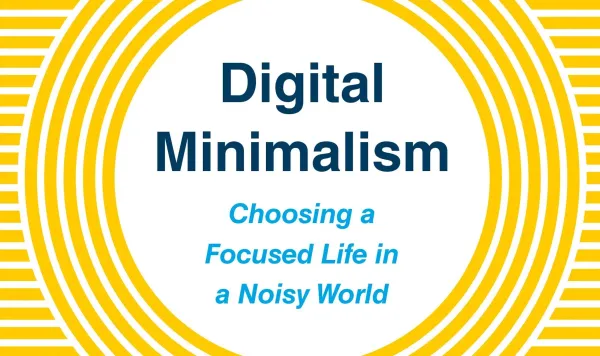Food, Comfort, and Change: How Small Steps Transformed My Relationship with Eating
In this article, I reflect on my relationship with food and how I broke the cycle of emotional eating. By making small, mindful changes, I’ve transformed my habits and my health. Learn how meditation, setting small goals, and protecting your body can help you do the same.

Welcome to this week’s article, where I want to dive into a topic that many of us struggle with: our relationship with food. It’s a complex, emotional topic, and for many—including myself—it’s not always a healthy relationship. Today, I want to share my personal journey with food and some small changes I’ve made that have had a big impact on my life.
My Story: Eating for Comfort, Avoiding Challenges
For many years, I didn’t have the best eating habits. Like many, I turned to food for comfort when I felt stressed, overwhelmed, or faced with tasks I didn’t want to deal with. Food became an escape—a way to feel a momentary sense of happiness or relief, even if just for an hour.
I would open my delivery app, find the closest restaurant, and order a burger. But not just any burger—it had to be loaded with extra cheese, bacon, and fries on the side. I’d sit down, watch a show, and indulge in this comfort food. For that hour or so, I felt great, like I was in control of something. But the crash that followed was brutal.
The Crash: Guilt and Physical Fatigue
If you’ve ever experienced this, you know what I’m talking about. After eating, the energy I had was gone. My body used all its resources to digest that heavy meal, leaving me drained and unable to focus on the tasks I had been avoiding. Along with physical exhaustion came the guilt—guilt for overeating, guilt for not tackling my to-do list, and guilt for letting myself down.
For a long time, this was my cycle. I was stuck in a loop of emotional eating and avoidance, and it was taking a toll on both my mental and physical health.
The Turning Point: Understanding the Why
One of the biggest steps in breaking this cycle was understanding why I was turning to food in the first place. It wasn’t just about being hungry—it was about procrastination, stress, and the desire to feel good in the moment. Once I realized that, I began to work on the root of the problem.
I started going to therapy, where I learned to unpack these behaviors. This was a critical part of my journey because it helped me understand that my relationship with food was about more than just eating. It was about avoiding uncomfortable emotions and tasks.
How I Started Making Changes
I knew I needed to make some changes, but I also knew I couldn’t overhaul my entire life overnight. Here’s what I’ve done—and what’s worked for me:
- Meditation
Meditation has been a game changer for me. It helps me become more aware of my actions and emotions, giving me space to pause before reacting impulsively. I use the Calm app to meditate daily, and it has helped me accept myself and stay present in the moment. - Small Goals, Big Impact
I didn’t set out to lose 30 kg all at once. Instead, I set smaller, more achievable goals—like losing 3 kg at a time. This approach made the journey feel less overwhelming and kept me motivated as I hit each milestone. The same principle applies to other areas of life: break big tasks into smaller ones to make them more manageable. - Building New Habits
Changing habits takes time. Studies show that it takes at least 21 days to form a new habit. I use a calendar to track my progress and stay consistent. Whether it’s walking 10,000 steps a day or eating healthier meals, the key is patience and persistence. - Listening to My Body
I’ve learned to be more mindful of what I eat and how it makes me feel. Instead of opting for a heavy meal late at night, I might choose something lighter like a salad, knowing that I’ll sleep better and wake up feeling more refreshed. - Setting Personal Motivations
One of my personal motivators is comfort during air travel. As airlines shrink seat sizes, I realized that losing weight would not only improve my health but also make flying more comfortable. This long-term goal helps me stay on track, even when the day-to-day progress feels slow.
Protecting This House
There’s a slogan from a popular sports brand that really resonates with me: "Protect This House." For me, this house is my body and mind, and it’s my responsibility to take care of both. No one else can do it for me.
This mindset shift has been crucial in helping me prioritize my health, stay active, and make better choices. It’s not just about losing weight or eating better—it’s about protecting the body and mind that allow me to do everything I want to achieve in life.
My Current Approach
Today, I focus on tracking my calories, being aware of what I’m eating, and staying consistent with my physical activity. I use the MyFitnessPal app, which I’ve been using for 12 years, to log my meals and keep myself accountable. It’s not just about calorie counting—it’s about understanding how sugar, fats, and cholesterol affect my body.
And one key thing: honesty. If I’m not truthful with myself about what I’m eating, I’m only sabotaging my own progress. So, I make a point of logging everything, even when it’s not perfect.
The Long-Term Goal: Feeling Good Inside and Out
The goal isn’t just about weight loss or physical appearance. It’s about feeling lighter—both mentally and physically. I want to feel energized, confident, and capable of doing more in my life. It’s about living longer, living better, and enjoying the process along the way.
I know it’s a long road, but I’m on the right path. I’ve already lost a couple of kilos, and I feel more energized and excited about life. I’m even more motivated to create and share content, like this article.
Your Relationship with Food
I invite you to reflect on your own relationship with food. Are there habits that are holding you back? What small changes can you make today that will have a big impact over time?
Start small. Maybe it’s a 10-minute walk each day or swapping out one heavy meal for something lighter. It doesn’t have to be drastic—just consistent.
Remember, every small step counts. It’s about building a healthier, more balanced life one day at a time.
To Conclude
Think of your body and mind as your house—something you need to protect and nurture. The changes you make today can have a long-lasting impact, and it all starts with one small step.
Thank you for reading this article. I hope it encourages you to take better care of yourself and make the small changes that lead to big improvements. Let’s stay connected—feel free to join to The Honest Growth Community Slack, it's free.




![Video Escape: Golf Course, Montevideo, Uruguay [Focus]](/content/images/size/w600/2024/10/DJI_0273.JPG)